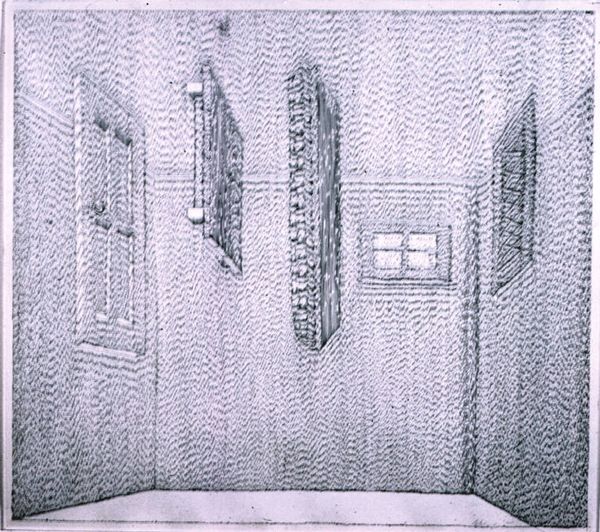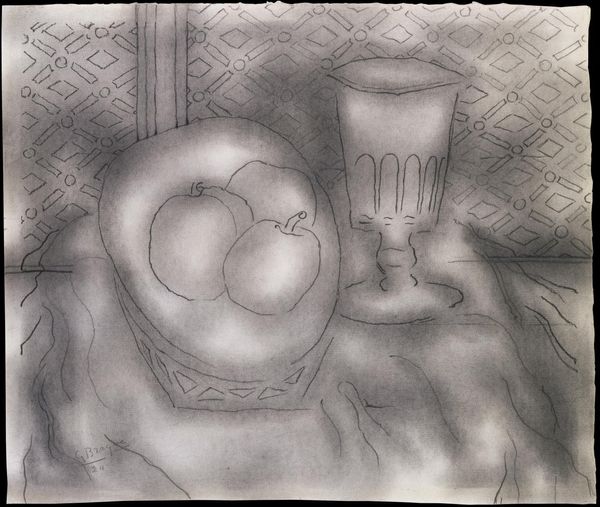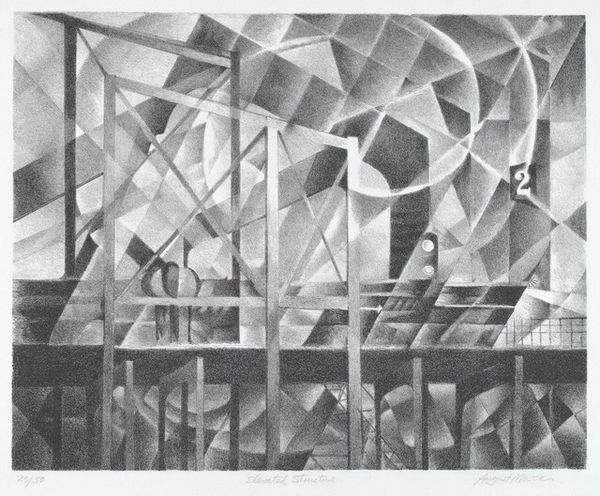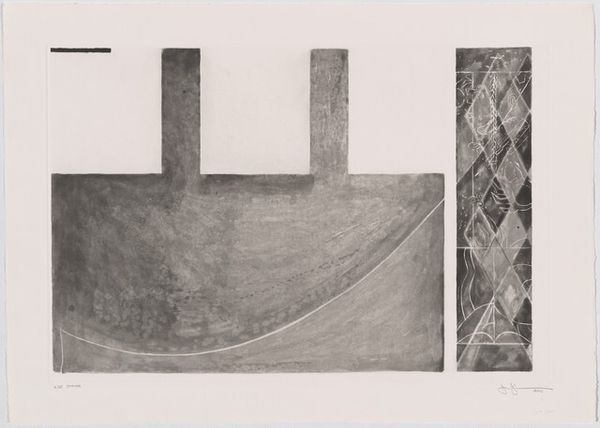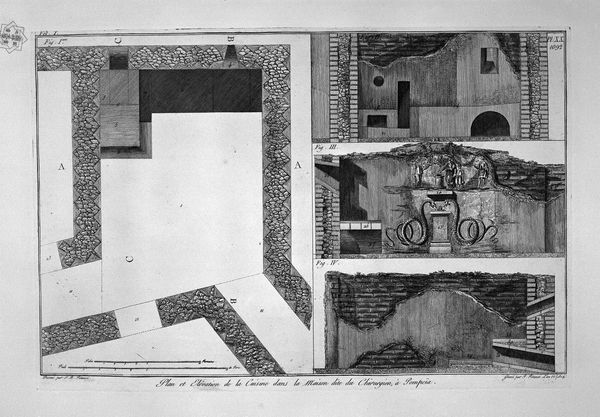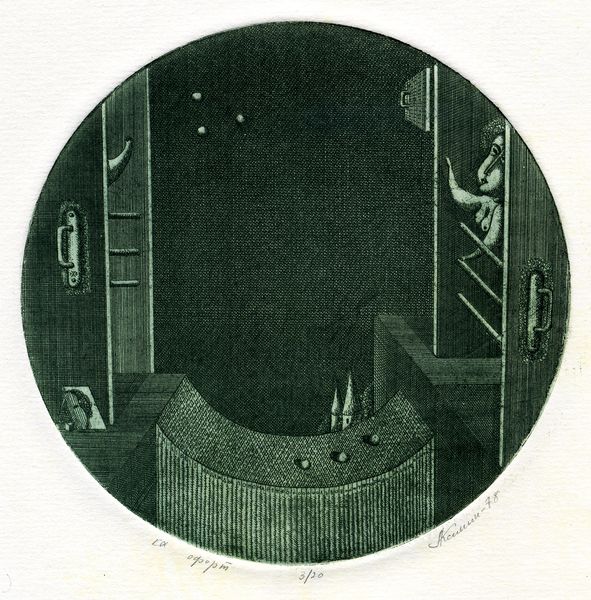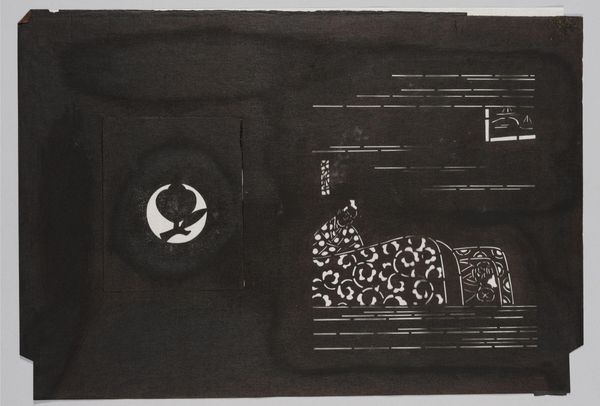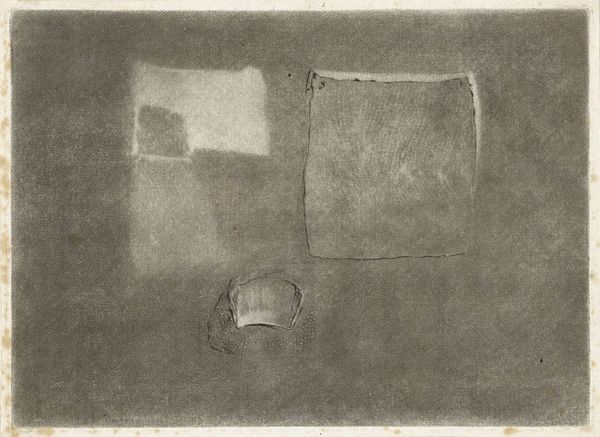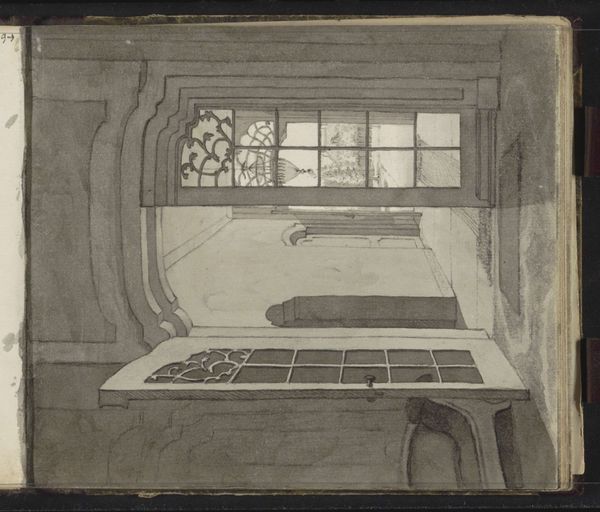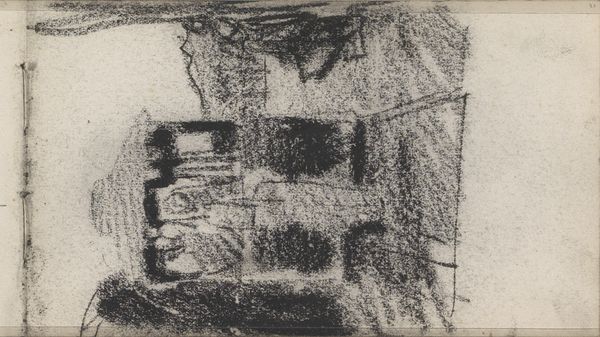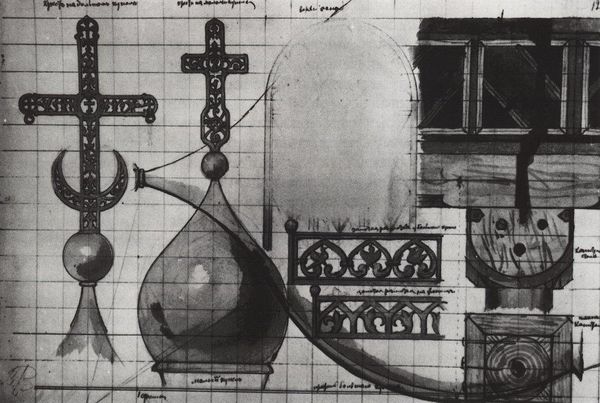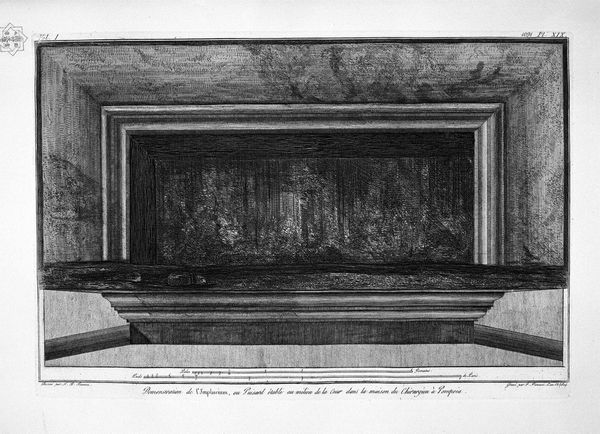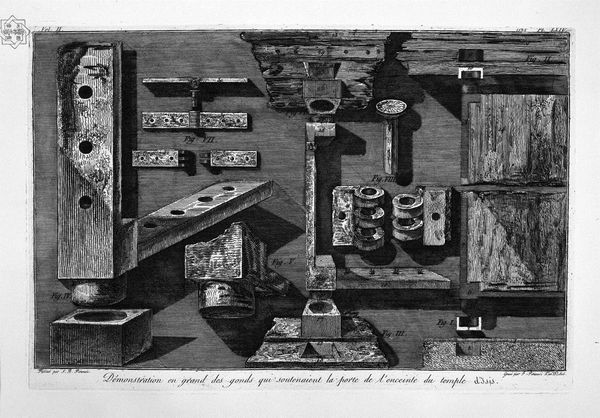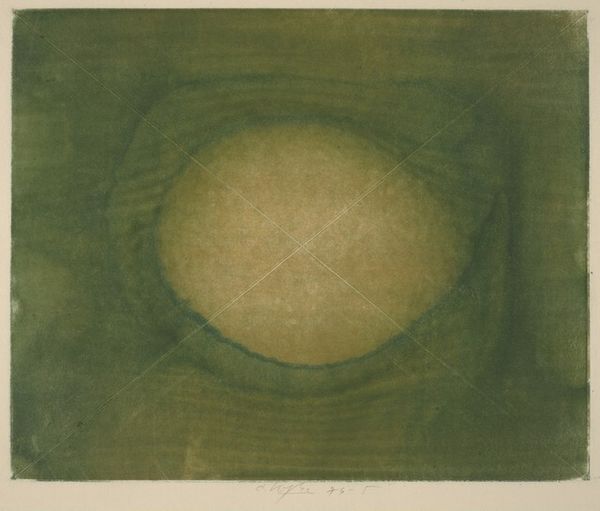
print, etching
# print
#
etching
#
geometric
#
realism
Copyright: Richard Artschwager,Fair Use
Editor: This etching, "Horizon" by Richard Artschwager from 1990, depicts an austere room with windows looking out onto landscapes. The rigorous geometric shapes give me a sense of constraint, almost like a psychological enclosure. What's your take on this unsettling scene? Curator: I see it as a commentary on constructed spaces and the gaze. Think about the tension between the "natural" landscapes framed by the windows, and the highly artificial, almost clinical interior. The tiled floor with circular forms feels almost like a surveillance grid. Editor: Surveillance, really? That's not where my mind went. Curator: Consider who controls the view. The positioning of the viewer, implied through the perspective, reinforces a sense of observation rather than participation. Artschwager often plays with the concept of “domestic space,” which historically has been a highly regulated domain, particularly for women. Does the image evoke those kinds of power dynamics for you? Editor: I hadn’t thought about it in terms of gendered space. The hanging light now seems less like a simple fixture and more like an all-seeing eye. Curator: Exactly. The print challenges the very notion of the "horizon" promised in the title. Is it a liberating vista, or a carefully curated, controlled one? This is a pertinent question when examining class-related socio-spatial structures. Editor: Seeing it through this lens of social structures makes the image even more disquieting, especially how the tiles almost lead your eye, against your will. Curator: And that tension, that friction, is where Artschwager’s work really ignites, questioning our assumed relationship with the spaces we inhabit and the unseen powers that shape them. I now see the unsettling as powerful.
Comments
No comments
Be the first to comment and join the conversation on the ultimate creative platform.
